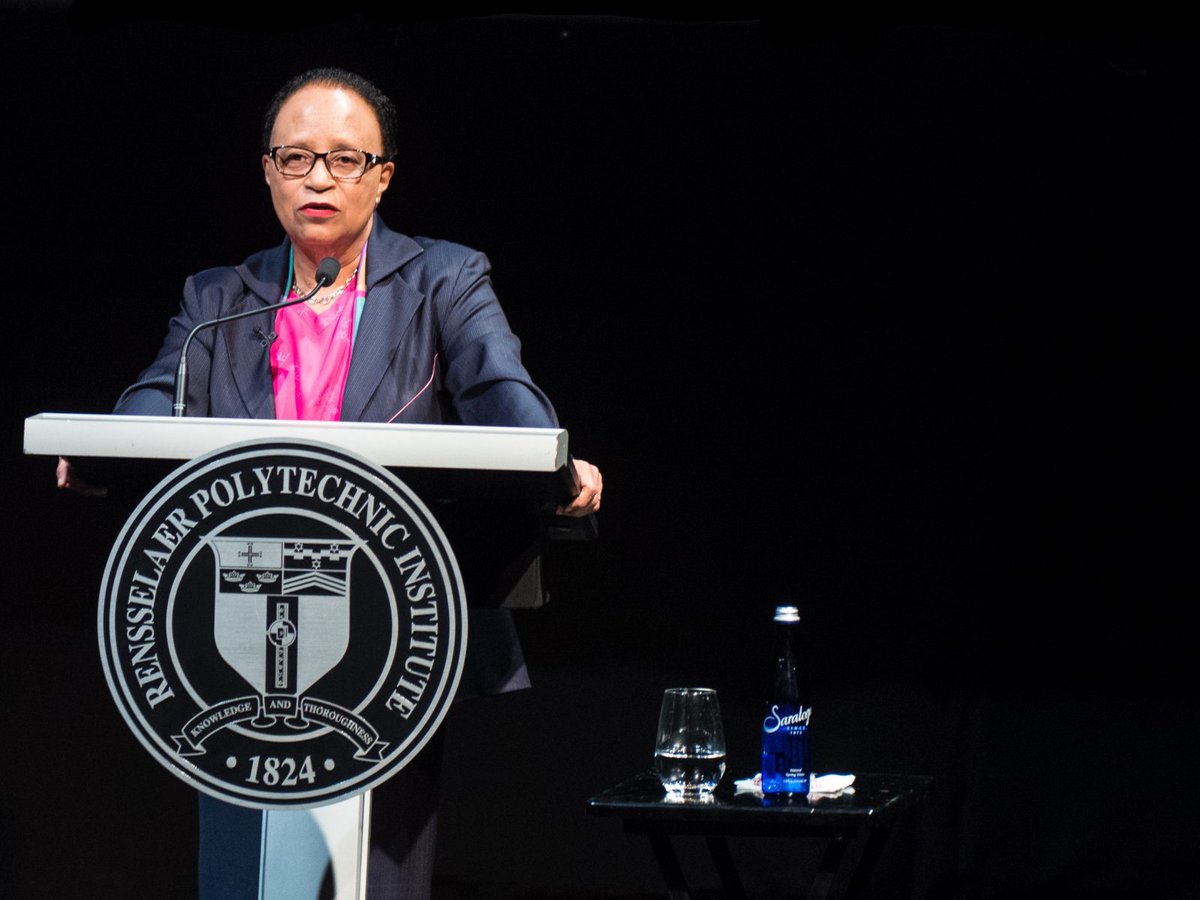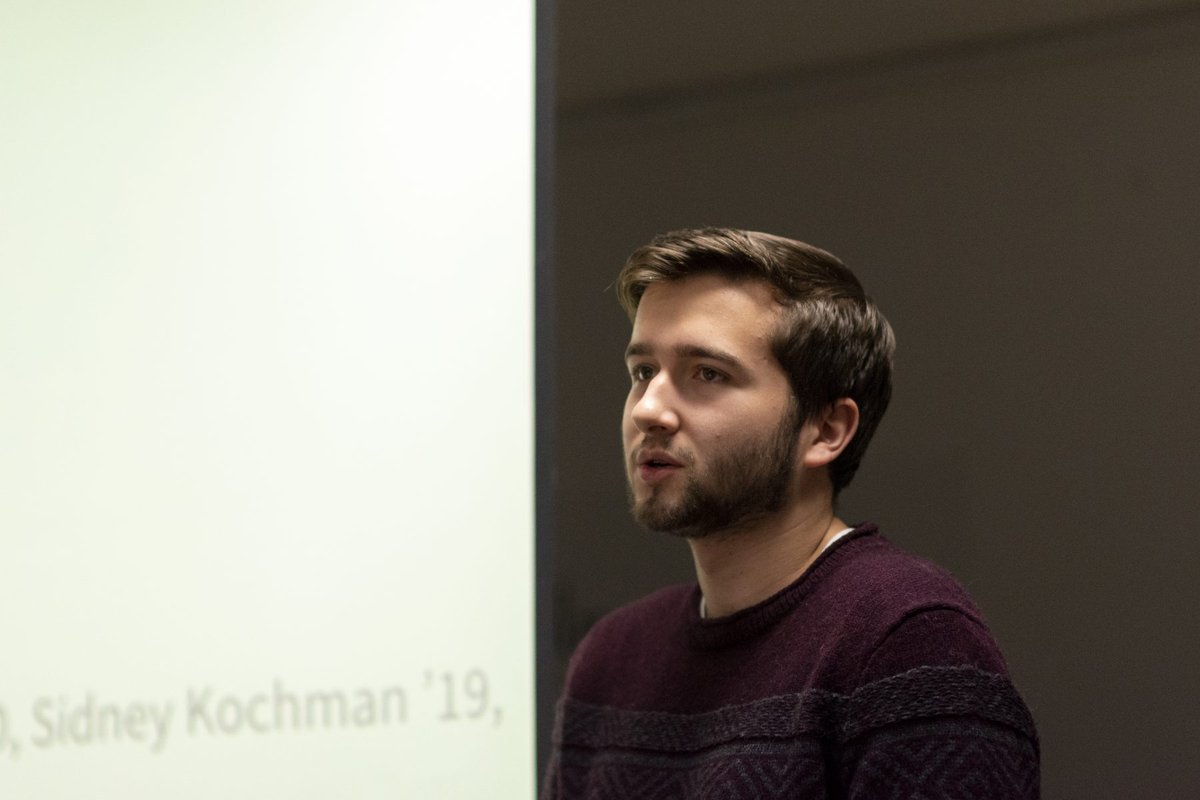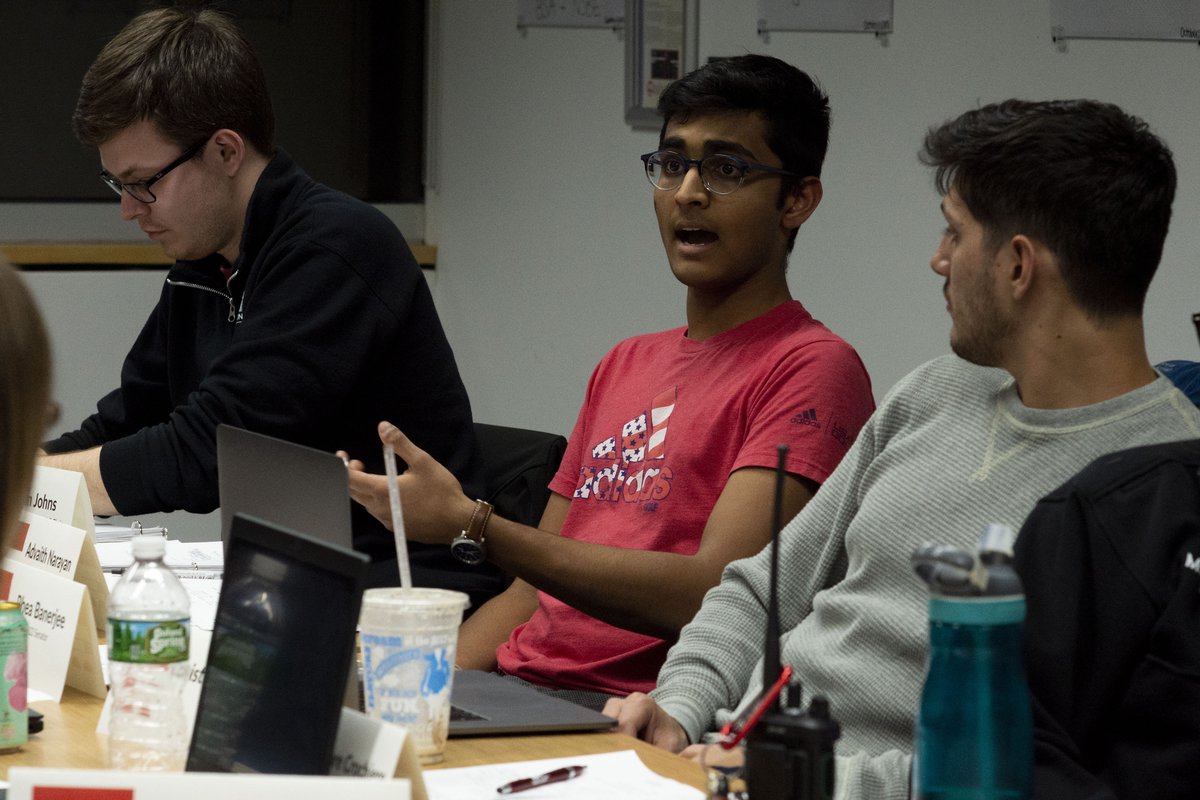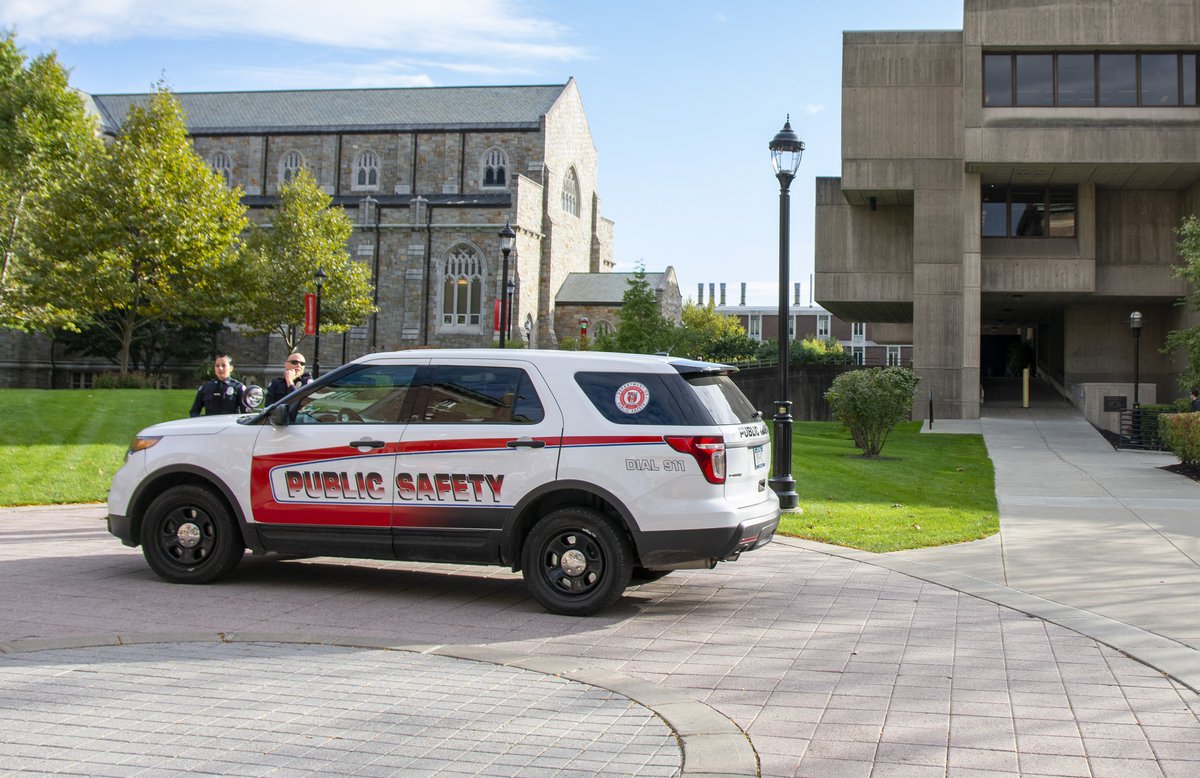Jackson addresses recent concerns

“I’ll be happy to answer questions, but what I thought we would do is, since I know a number of you received this flyer—we thought we would just walk through these questions and give you answers to them,” said President Shirley Ann Jackson during the Spring Town Meeting at the Experimental Media and Performing Arts Center on March 22.
Jackson was referencing a flyer that was distributed by two members of Save the Union at the event entrance. It outlined what Save the Union considers “some of the most important updates” since the last Fall Town Meeting, which included the stalling of a search for a director of the Union, the forwarding of Professor Chris Bystroff’s email to alumni, and speculations about the capital campaign’s progress.
Assistant Vice President and Dean of Students Travis T. Apgar; Director of Student Rights, Responsibilities, and Judicial Affairs Michael Arno; Dean of Student Living and Learning Cary Dresher; and a Public Safety officer were seen intermittently standing and talking with the students distributing flyers and buttons. The students were not asked to leave.
Vice President for Human Resources Curtis Powell addressed the first point on the flyer, which asserted that the “administration [gave] a [director of the Union] candidate the [student committee’s] interview questions.”
“I was informed by [President of the Union] Matt [Rand] that the candidate had the questions. I don’t know where the candidate received the questions from, whether he wrote them down or whatever. So, I decided that we would reconstitute the search, so that’s what we’re doing,” shared Powell. The reconstituted search will begin “within the next two weeks or so.”
According to Apgar, students will be “intimately involved in the process, and their input will be weighed heavily on our ultimate decision.”
“Let me just reiterate about searches, all of our searches here. We’ve been very successful. And to participate in these searches is not a right—it’s a privilege. And, given that privilege, we do expect individuals to act accordingly in representing this institution. And we went through a process to work with the student leadership; I’m gonna change that process of how we do business,” Powell later continued.
Powell then invited the audience to a meeting with the Student Senate and the Executive Board on Monday, March 26 to discuss that process, because “we’re not going to tolerate what we’ve been through the last time.”
Vice President for Strategic Communications and External Relations Richie Hunter addressed the situation in which students distributing material outside of a hockey game were asked to leave by a Public Safety officer who claimed that RPI had “eminent domain” over a sidewalk. According to Hunter, when students distributing material outside of a hockey game were asked to leave, a Public Safety officer incorrectly used the phrase “eminent domain.”
“The bottom line is, and the officer may have made a mistake in his phraseology, but the property on which the students were handing out the materials was Rensselaer-owned campus property,” further elaborated General Counsel and Secretary Craig A. Cook.
Cook explained that these policies and their consistent enforcement help keep solicitation by outside organizations, such as credit card companies or the National Rifle Association, off campus.
Vice President for Institute Advancement Graig Eastin spoke to the flyer’s point about his decision to forward Professor Chris Bystroff’s email, which attributed the decrease in alumni donations to racism and sexism, to the alumni mailing list. Eastin expressed that the email was already being discussed in a “broad domain area,” and that forwarding it was “not to make an opinion.”
Hunter stressed that the opinions expressed in the email are not the official position of the Institute, and that the Institute is supportive of freedom of expression.
When asked again about his decision to send the email and include “Important to get the truth out there” as the subject line, Eastin said, “Knowing the factors that I know, if they were the same today, I would do the same thing. And, so, that is where it is.”
On the points raised about the capital campaign in the flyer, Eastin said, “an institution is either in two states: in a campaign or preparing for a campaign. And so, yes, we actually are in a campaign and we actually have raised over $400 million. And we’re moving towards over $425 million. And so, we are in a campaign, and we started counting the campaign at the end of the last campaign. And that’s what every institution does.”
The previous capital campaign concluded on October 1, 2008, and the most recent capital campaign was launched on October 13, 2017.
The final point on the Save the Union flyer lists “many noticeable changes” to the Rensselaer Union, including that the Student Senate “lost its ability to approve changes to the Student Handbook,” and “the student body no longer meets Dr. Jackson with the same frequency as they [sic] once did.”
“The Handbook of Student Rights and Responsibilities is a university document. We have a responsibility to make sure that not only is it up to date and following all of the external state and federal legislation that would tell us how to enact policy, we also want to make sure that it’s appropriate for our students, our student community, and the larger Rensselaer community,” explained Apgar.
He stressed that students, such as members of the Student Senate, are involved in that process, but that there will not be a codified process that would “put in place a bureaucracy that would delay any kind of changes necessary for us to comply with state or federal policies or laws.”
“Would I like to spend more time meeting with students? Absolutely. But, if you want to ask, you know, where my focus is—if I can create an Off Campus Commons, if I can create a Safe Ride service, if I can increase the financial aid budget, if we can still keep hiring instructional staff, if we can improve student housing, you know, we’ve done a multi-year renovation of the [Quadrangle Complex], and so forth—then, those are the things that are my greatest responsibility.” shared Jackson, in response to the flyer’s claims about her frequency of meeting with students.
Jackson later elaborated, “It is simply an untruth to try to propagate that I do not meet with students, and I don’t want to use a stronger word, but it is important that all of us tell the whole truth. And I really care deeply about our students, I care deeply about the full Rensselaer community. The Board [of Trustees], and I said this in more than one form, asked me to come here to effect transformative change. I’ve come to do that, and that is what has been happening.
“There were many things that had to be addressed when I got here. Not all of those decisions are popular. But in the end, one makes the decisions that one has to make. And I’ve committed and I’ve stayed here for 19 years, in spite of things that have shown up in the media, both internal to the university and external—some of which has been pretty egregious. But, I’m committed to what I do. And I love the people here. And that’s my statement.”
Prior to reviewing the flyer and yielding questions from the audience, Jackson shared updates on Rensselaer’s incoming freshman class and the approved operating budget for the next fiscal year.
“Our superb academic programs prepare Rensselaer students to lead, and I congratulate our faculty, students, and administrators, and staff for the degree to which these programs are now being lauded by many different sources,” expressed Jackson.
These sources included rankings by College Choice, DesignIntelligence, the TFE Times, and College Factual. Notably, the Information Technology and Web Science program was ranked first by College Choice, and The Princeton Review ranked Rensselaer 19th in the nation for “Best Career Placement” in its 2018 annual guide.
“Our ability to anticipate which emerging disciplines are likely to prove most important is one reason why demand for a Rensselaer education has never been higher,” said Jackson.
Applications for the upcoming freshman class totalled 20,375—a five percent increase from last year’s record-breaking number.
“Even more telling is the fact that for an enormous number of students, Rensselaer is their very first choice. So they decide to apply for early decision, which is binding if we accept them. And we received the most early decisions applications and confirmations in our history. 30 percent of the incoming class of freshmen will have been admitted through early decision,” Jackson later continued.
The Board of Trustees approved an operating budget of $439.5 million for the upcoming fiscal year; tuition for both undergraduate and graduate students will increase by three percent to total $52,550, remaining in line with other universities. Room and board will increase by two percent, and the financial aid budget will increase by 5.3 percent.
Jackson also announced that the 212th commencement ceremony will take place on Friday, May 18 in the EMPAC Concert Hall. Honorary degrees will be given to Herbie Hancock, Mary Jo White, Eric Lander, and Alicia Bohler Davis.

 Town Meeting
Town Meeting
 Student Senate
Student Senate
 Rensselaer Union
Rensselaer Union
 Campus Security
Campus Security